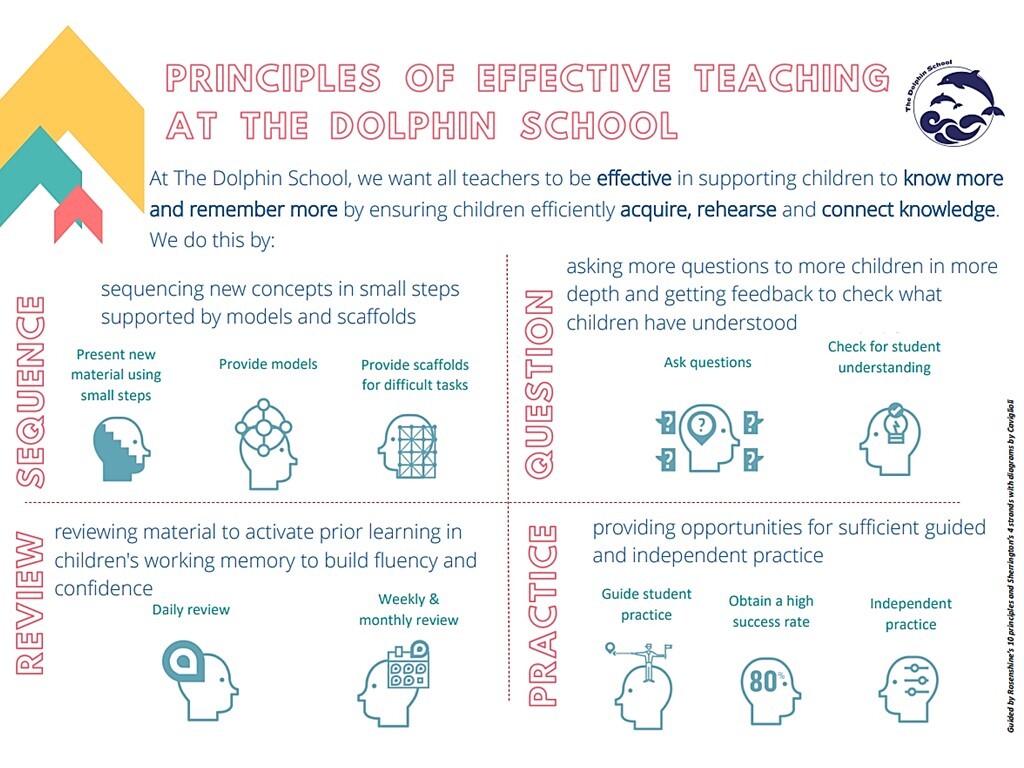Teaching & Learning
At The Dolphin School we recognise that effective learning involves children and families, staff, The Trust and the wider community and beyond. For optimum benefit and impact, all should work closely together to support the process of learning.
A positive learning culture is evident throughout The Dolphin School; we encourage our children to develop enquiring minds and a “can do” attitude to all aspects of the curriculum.
At the Dolphin School our four core values underpin everything we do:
Respect – All of our children, staff and families are respectful of each other’s beliefs, feelings and values. They are also respectful of our school and resources.
Responsibility – Our children are responsible for their own learning. Our school is special and we work together to keep it that way.
Curiosity – Our children, staff and families love to find things out, ask questions and be brave.
Resilience – Our children, staff and families need to keep going when things are tough, mistakes are a way for us to learn.
Our approach to teaching is based on our understanding of how we learn. Because of this, we lean upon the observations and research of Barak Rosenshine and the subsequent work of Tom Sherrington in identifying the following princples of effective teaching.
Home learning
Home learning, its various forms, can provide a way to promote children learning and encourages links between home and The Dolphin School, by involving families in the work of their child. We recognise and value the role that families have in supporting and extending their child’s learning.
We use home learning to enhance and accelerate children’s learning through reinforcing skills and concepts introduced at The Dolphin School
- to enable pupils to make maximum progress in their academic and social development;
- to help pupils develop the skills of an independent learner;
- to promote cooperation between home and The Dolphin School in supporting each child's learning;
- to consolidate and reinforce the learning done at The Dolphin School, and to allow children to practice skills taught in lessons;
- to help children develop good work habits for the future;
- to encourage family involvement in their child’s education.

